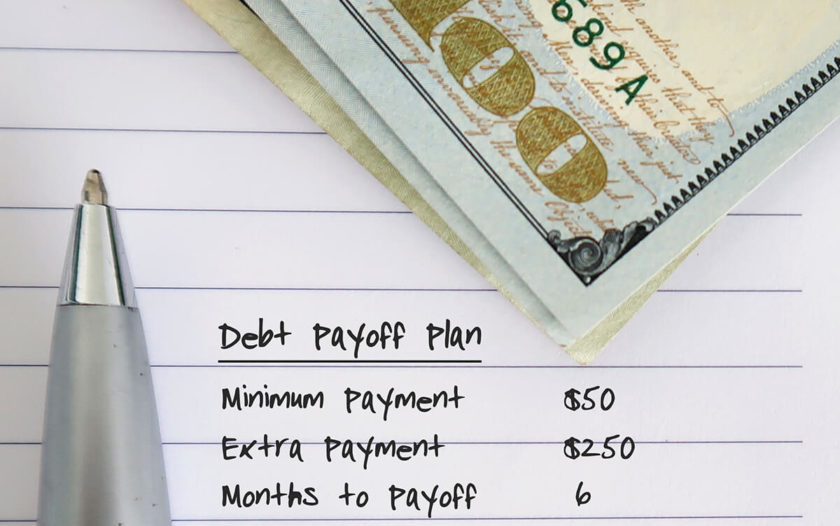Credit Card Payments: How to Pay Off Your Bill
About Stefanie
Stefanie began her career as a journalist, reporting on options, futures, and pension funds, and most recently worked as a writer and SEO content strategist at a digital marketing agency. In her free time, she enjoys teaching Pilates and spending time with her daughter and Siberian Husky.
Read full bio
At a Glance
Credit card bills allow you to decide how much to pay each month. While this offers you the freedom of being able to pay more or less depending on your financial situation, it’s important to understand your different options.
Steps to pay off your credit card:
- Pay over the minimum
- Pay off one small amount at a time
- Focus on accounts one by one
- Use a 0% APR credit card
Credit card terms defined
Here are a few terms you should keep in mind when looking over your credit card bill:
1. Statement balance
The charges made during your last billing cycle, in addition to any outstanding charges you still owe. You’ll avoid paying interest if you pay the full statement balance each month.
2. Current balance
The total number of charges to date on your account that haven’t yet been paid. Unlike the statement balance, the current balance is completely up to date. You don’t need to pay the current balance to avoid fees, but paying it can help improve your credit score by lowering your credit utilization ratio (the amount of credit you’re using divided by the amount available).
3. Minimum payment
The least amount you should pay each billing cycle to avoid fees or penalty interest rates. You should try to pay more than the minimum since just paying the minimum each month can still result in your balance increasing (you could rack up interest faster than you pay it off).
Related: Will Making the Minimum Payment Hurt Your Credit Score?
4. Custom amount
Most credit card companies will allow you to pay whatever amount you’d like. For example, you could pay a custom amount if you want to pay over the minimum balance but don’t have enough to cover the statement balance. However, paying the full statement balance is best since it will allow you to avoid paying interest and keep your balance low.
5. Billing cycle
The duration of time between billings, typically between 28-31 days.
6. APR
The annual percentage rate, or the interest you pay when you don’t pay the balance off in full.
7. Penalty APR
The increased APR rate you’ll get charged if you’re late paying your credit card bill
Tips for staying on top of payments
Here are a few ways you can make sure you stay on top of your payments:
- Download a reminder app that will alert you when you have an upcoming bill
- Enroll in automatic payments with online banking
- Pay all of your bills at the same time so one doesn’t fall through the cracks
Should you carry a balance on your credit card?
Carrying a balance on your credit card can both hurt your credit score by increasing your credit utilization ratio and raise the amount you need to pay in interest. You should always try to pay your balance in full each month.
3 reasons to pay your credit card bill early
It’s best to pay your credit card bill early if possible:
- Paying off debt early will reduce the amount of available credit you’re using which is beneficial for your credit score. It can also be helpful to track your credit utilization ratio and pay whenever you’re close to exceeding 30%.
- It will free up more credit for purchases and ensure that you don’t accidentally go over your credit limit.
- If you’re carrying a balance, paying early will help you save on interest. Interest is based on your average daily balance. If you pay early, you’ll accrue less.
How to pay off your credit card fast?
Here are some different strategies to help you pay off your credit card quickly:
-
- Pay over the minimum: Pay more than the minimum balance on your card. It’ll help you get out of debt while accruing less interest.
Save on interest and be debt-free faster
Use our debt payoff calculator to find the right repayment plan for you.
- Divide and conquer: Try setting goals to pay off one small portion at a time.
- Stay focused: Consumers who focus on just repaying one account-instead of trying to pay off multiple accounts at once-tend to repay their debt quicker.
- Try a 0% APR credit card: Credit cards that offer 0% introductory APR (annual percentage rate) don’t add interest to your purchases for a specified amount of time, typically from 12 to 21 months.
Learn more: How to pay off credit card debt fast









